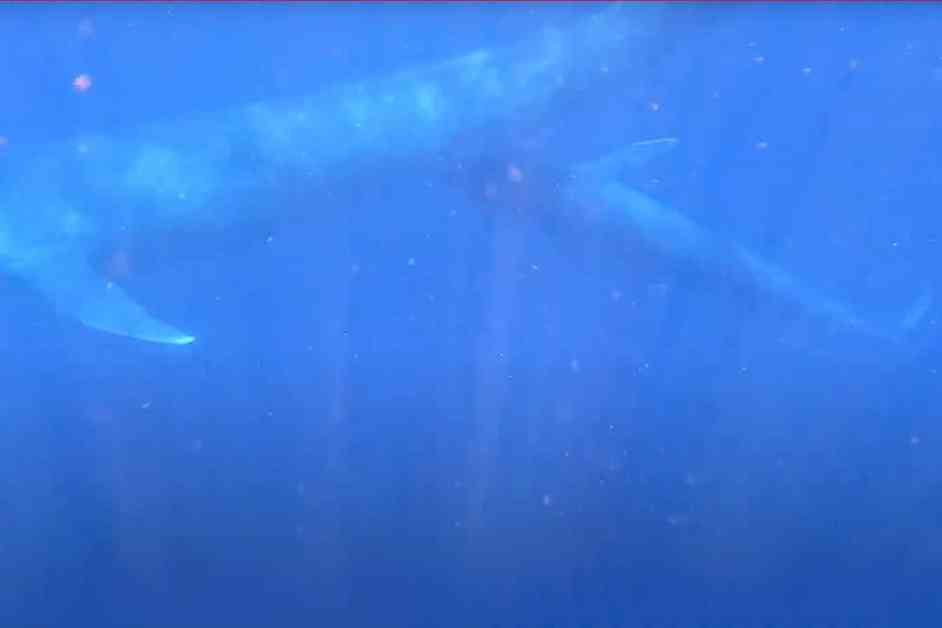A rare and extraordinary video has been released showing a blue whale calf suckling from its mother, captured by a snorkeller in East Timor. The footage, filmed during an eco-tourism voyage in 2022 off the coast of Dili, provides a unique glimpse into the life of these majestic creatures.
Experts have confirmed that the calf in the video is not a newborn but is still suckling from its mother. This behaviour has never been captured before, making this footage a groundbreaking achievement. Blue whales, known as the largest animal on Earth, can reach lengths of over 30 meters and weigh almost 200 tonnes. The pygmy blue whales found off East Timor are slightly smaller, with maximum lengths of 24 meters.
Blue whale calves do not physically attach to their mothers while feeding. Instead, the mother releases oily milk into the water, which the calf then swallows. The calf in the video appears to be large and is likely in its second year with its mother, as blue whales typically wean their calves at three years of age.
In addition to the remarkable feeding behavior captured in the video, a decade-long research and citizen science project in the area has revealed other key behaviors of pygmy blue whales. The database collected since 2014 shows that East Timor may host one of the largest migrations of these creatures in the world. Newborn calves, courtship rituals, pre-mating behaviors, and feeding habits have all been observed and documented.
Capri Beck from Western Australia’s Department of Water and Environmental Regulation highlights the significance of the footage, emphasizing the rarity of being able to witness and film such behavior. Blue whales are often found far offshore in remote areas, making it challenging to encounter them, let alone capture moments like a calf suckling from its mother.
The newfound information and footage provide valuable insights into the lives of blue whales and their behaviors, shedding light on their migration patterns and interactions. This groundbreaking video not only showcases the beauty of these magnificent creatures but also contributes to ongoing research efforts to protect and conserve blue whale populations worldwide.






